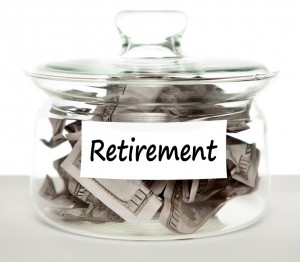 Retirement accounts, like 401ks and IRAs, generally affect bankruptcy cases in two ways. First, retirement accounts are fully exempt in most cases. This means that a debtor with significant amounts in a retirement account can file for bankruptcy relief and the asset will be protected from seizure by the trustee. There are exceptions to this exemption. For example, contributions to the account should be normal contributions as part of employment. If a debtor makes additional contributions of cash on hand in order to reduce the amount of their nonexempt property then the trustee may seek to avoid the transfers or claim that they were made fraudulently. Courts will usually allow a small amount of bankruptcy planning, but if the debtor gets greedy he may find himself in trouble with the trustee and the bankruptcy court. The bottom line is that if a debtor attempts to work the system by converting nonexempt property into exempt property by placing it in a retirement account there is a risk that the court will deny him a discharge.
Retirement accounts, like 401ks and IRAs, generally affect bankruptcy cases in two ways. First, retirement accounts are fully exempt in most cases. This means that a debtor with significant amounts in a retirement account can file for bankruptcy relief and the asset will be protected from seizure by the trustee. There are exceptions to this exemption. For example, contributions to the account should be normal contributions as part of employment. If a debtor makes additional contributions of cash on hand in order to reduce the amount of their nonexempt property then the trustee may seek to avoid the transfers or claim that they were made fraudulently. Courts will usually allow a small amount of bankruptcy planning, but if the debtor gets greedy he may find himself in trouble with the trustee and the bankruptcy court. The bottom line is that if a debtor attempts to work the system by converting nonexempt property into exempt property by placing it in a retirement account there is a risk that the court will deny him a discharge.
The second way that a retirement account affects a bankruptcy case is as a deduction on the means test. Retirement accounts like pensions and TRS accounts can be used to reduce a debtor’s disposable income which will help them with eligibility for a Chapter 7 discharge and reduce their plan payment in a Chapter 13 case. This also applies to any other type of retirement account that is a requirement of employment and cannot be opted out. Voluntary retirement accounts like 401ks and IRAs can be used to reduce a plan payment in a Chapter 13 case but are not allowed as a deduction in a Chapter 7 means test. In some cases this creates a situation where a debtor truly has no disposable income when considering their actual income and budget but still do not qualify for a Chapter 7 discharge. Instead, they must file a Chapter 13 case and make a minimum payment.